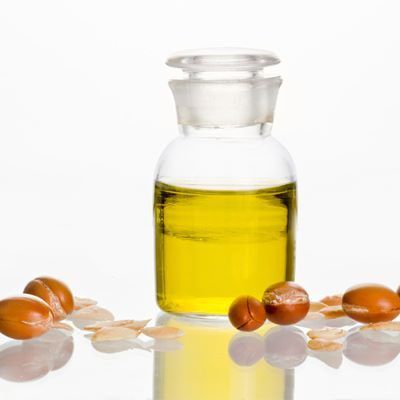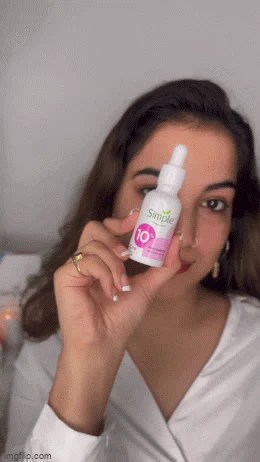
Oil is considered the “black sheep” of beauty because of its oily nature. The good news is that natural oils can help keep your skin hydrated, smooth, and glowing, just like the oils you eat.
Make sure to do a patch test if you have sensitive skin or are prone to acne before you apply any oil.
Continue reading to learn how these 11 oils could be the natural remedy for your beauty issues.
Argan Oil
Ideal for: Fine Lines, Dry Skin, and Dry Hair
What is it: The hype surrounding Argan oil has been greater than U2’s new album. However, the consensus is that both are justified. Argan oil is extracted from the kernels of Moroccan argan trees and contains high levels of vitamin E, Omega-3 fatty acids, antioxidants, and other nutrients. Although argan oil was first praised for its ability to heal damaged and dry hair, it also has many other benefits. Joshua Zeichner is an assistant professor of dermatology at Mount Sinai Medical Center in New York City. “The fatty acid helps our skin cells to make healthy membranes. They also reduce inflammation and promote healthy collagen.”
Avocado Oil
Recommended for: Dry, sensitive, or irritated skin
What is it: Jennifer Linder, MD, assistant clinical professor of dermatology at the University of California at San Francisco, says that avocado oil is rich in vitamin E and Omega-3 fatty acids. This aids cell function and reduces inflammation. Avocado oil is an excellent emollient for dry, itchy, or aged skin.
Coconut Oil
Best for Sensitive skin, eczema, dry hair
What is it: “When my client has susceptible skin, I recommend Coconut oil straight from the grocery shop as a body moisturizing agent,” Joanna Vargas, a New York City celebrity facialist. Its fatty acid content makes it useful for people with eczema.
Research has also shown coconut oil can be used to restore dry hair. Perry Romanowski, a Chicago cosmetic chemist, says that coconut oil’s 12-carbon fatty acids structure allows it to penetrate the hair cuticle and provide flexibility and strength. Use it to condition your hair in the shower.
Flaxseed Oil
Ideal for: Sensitive, itchy skin and conditions like eczema or dermatitis
What is it: Flaxseed contains heart-healthy Omega-3 and Omega-6 fatty acids. This is essential for healthy skin and heart. Howard Sobel, MD, a Lenox Hill Hospital dermatologist and dermatologic surgeon in New York City, states that you can use the oil to moisturize your skin or mix it with other foods. It has anti-inflammatory properties, and studies have shown that it can improve skin conditions like eczema if used daily.
Jojoba Oil
Ideal for: Dry skin
What is it: Although technically a wax, the chemical structure of jojoba oil (pronounced ho-HOba) is very similar to skin’s natural oils. It’s easy to absorb. Dermatologists recommend it because it contains vitamins B and E and minerals like zinc and copper.
Lavender Oil
Ideal for: Irritated or acne-prone skin
What is it: Lavender oil is a new flowering top of the lavender plant. It may particularly benefit those suffering from acne or other skin irritations. Linder says that lavender oil is an antiseptic and disinfectant that helps control sebum production and soothes irritation. Your other skin products can also benefit from lavender oil. Linder says lavender oil is thought to aid in absorbing active ingredients into the skin.
Olive Oil
For: Dehydrated skin
What is it? Extra-virgin Olive Oil — especially — is an excellent all-around moisturizer that is great for dry skin. Dr. Sobel states that olive oil is rich in vitamin E and fatty acids. Olive oil, like jojoba oil and other oils that our skin naturally produces, is well absorbed into the skin. Although it is not known to cause allergic reactions, it should be avoided by people with severe acne. Research also shows that olive oil’s antioxidants may protect against skin carcinoma.
Rose Hip Seed Oil
Ideal for: Skin with uneven pigmentation, scarring, fine lines, and acne-prone skin
What is it: The rose hip seed oil is extracted from the South American rosebush seeds. It is similar to Mother Nature’s Vitamin A without any side effects. Sobel says it contains essential fatty acids, omega-6, and vitamins A and C, which help increase cell turnover. It will make your skin look lighter and more radiant after a few weeks.
Rosehip seed oil can also benefit aging skin due to its retinol-like effects and increased collagen and elastin levels. Rosehip seed oil may be beneficial for acne-prone skin due to its high levels of linoleic acids.
Safflower Oil
Recommended for: Dry and irritated skin
What is it: Linoleic acid (omega-6 fatty acids) helps your skin make ceramides. Ceramides are a type of lipid that helps your skin retain water and prevent drying. “It’s the best oil for dry, inflamed skin, except argan oil. But safflower is cheaper,” Leslie Baumann MD, a Miami dermatologist and author of Skin Type Solutions. Safflower oil can be used to prevent dry skin. This is especially true if you eat a low-fat diet. Dr. Baumann states that vegetarians and people on low-fat diets or high cholesterol are more likely than others to develop dry skin. However, safflower oils can be added to food to help.
Tea Tree Oil
Best for Acne-prone skin
What is it: Tea Tree oil is an essential oil extracted from the leaves of the Australian tree Melaleuca alterifolia. It is found in natural acne remedies and helps to kill bacteria that cause blemishes. Dr. Zeichner says it is best to use it with alpha- or beta-hydroxyl-acid washes for the best results. This will help to remove dead skin cells and prevent clogged pores.
Tea tree oil is a natural substance. However, it can cause skin irritation, so be sure to test it on a small area of the skin before applying it everywhere.



